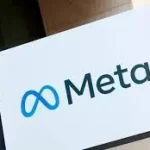Adblock Plus is launching a new service that… uh, puts more ads on your screen.
Rather than stripping all ads from the internet forever, Adblock Plus is hoping to replace the bad ads — anything it deems too big, too ugly, or too intrusive — with good ads, ones that are smaller, subtler, and theoretically much less annoying.
It’ll begin doing that through an ad marketplace, which will allow blogs and other website operators to pick out so-called “acceptable” ads and place them on their pages. If a visitor using Adblock Plus comes to the page, they’ll be shown those “acceptable ads,” instead of whatever ads the site would normally run.
“It allows you to treat the two different ecosystems completely differently and monetize each one,” says Ben Williams, Adblock Plus’ operations and communications director. “And crucially, monetize the ad blockers on on their own terms.”
The marketplace is a extension of the Acceptable Ads program that Adblock Plus has been running since 2011. Since then, the ad blocker has defaulted to “whitelisting” approved ads, so that they show up even when users have the blocker turned on. But the program has been fairly limited in scope, since publishers and ad networks need to specifically work with (and pay) Adblock Plus to have their ads deemed acceptable. It’s a time-consuming process, Williams emphasized, which limits how many websites can sign up to display ads to would-be blockers.
Adblock Plus hopes that, through this new marketplace, there’ll be a big expansion in the usage of Acceptable Ads. Because they’re already picked out and ready to go, any publisher will be able to sign up, plug some code into their website, and start running whitelisted ads. None of the ads are able to track visitors from site to site, and they’ll all be limited to certain dimensions and page locations, as defined by Adblock Plus’ guidelines.
The program is meant to be friendly to publishers — it is, after all, letting them displaysome ads instead of none whatsoever. But there’s still obvious reason for publishers to be unhappy. Acceptable ads are likely to be less valuable than the ads a publisher could otherwise display, limiting what a website can earn. And in setting up its own marketplace, Adblock Plus continues to position itself as a gatekeeper charging a toll to get through a gate of its own making.
Publishers will get to keep 80 percent of all ad revenue from marketplace ads, with the remaining 20 percent being divided between various other parties involved with serving the ads. Adblock Plus will receive 6 percent of total revenue.
Williams says he can see why publishers might be unhappy with this arrangement at first, but he says the Acceptable Ads program is meant to solve a problem that would exist no matter what. “Ad blocking would have happened with or without us,” says Williams. “What we were able to do is try and reverse the spread of 100 percent black-and-white ad blocking, blocking everything … Acceptable ads was a pivot toward what we think is better.”
The ad marketplace is launching in beta today and is supposed to launch in full later this year. At the same time, Adblock Plus is working toward setting up a committee of publishers, privacy advocates, and advertisers to figure out the future of what its Acceptable Ad guidelines should look like. That too is supposed to get nailed down sometime later this year, with committee meetings beginning next year.





